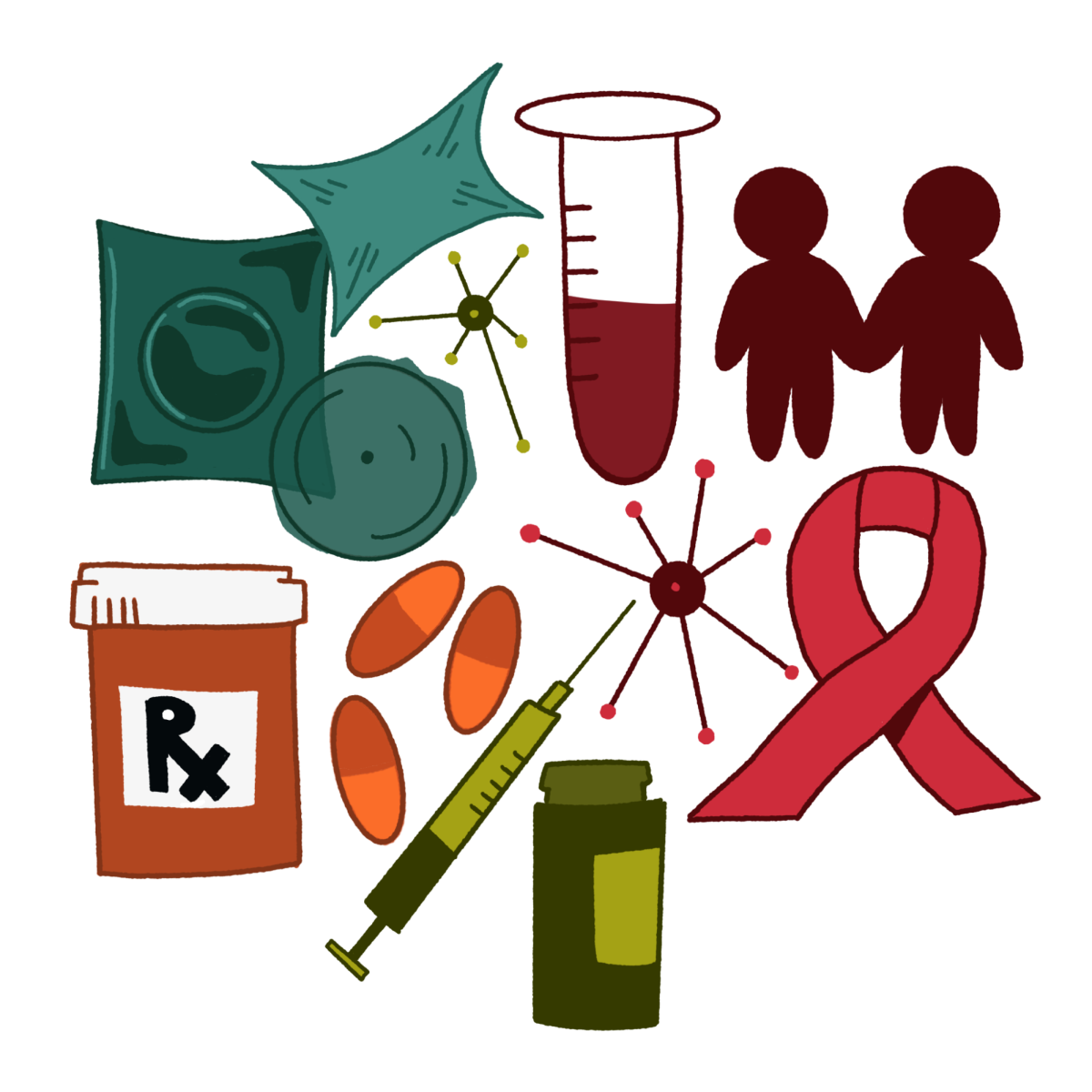An unsettling statistic looms over the city of San Antonio: its ranking as the 19th highest city in the nation for sexually transmitted diseases (STD). The staggering STD rates in San Antonio are currently an extremely pressing issue.
In an article by the San Antonio Current, the city was revealed to be the highest-ranking city in Texas, aside from Laredo, for STD cases. Statistics gathered from Innerbody Research, a health information site, concluded there were 1,178 STD cases for every 100,000 residents in the Alamo City. In all, 12,625 reports of chlamydia, 1,190 cases of gonorrhea, 1,056 cases of syphilis and 333 new cases of HIV were reported in the city, according to data gathered in 2021.
Since there has been a 28.6% nationwide increase in syphilis cases over the previous year, concerns have been raised regarding the rising number of STD cases. More information showed that since 2001, there has been a 464% increase in congenital syphilis cases — a condition in which the virus is transferred from mother to child.
UTSA’s Wellbeing Education Coordinator and Wellbeing Services personnel Jaime Singh further discussed the issues of STDs and STIs in San Antonio and the various services regarding sexual health offered at UTSA for students.
“Wellbeing Services is a department focused on the education and prevention of certain health disparities that college students may face,” Singh said. “We have three wellbeing education coordinators [and] one prevention specialist that focus on any sort of health topic, [such as] sexual health, stress, nutrition, physical wellness and mental health.”
When asked about his opinion on the rising cases in San Antonio as a medical professional, Singh said, “With the increased access to sexually transmitted infection testing, obviously we’re going to see an increased rate [of] STIs in the city, the country and the university, even because we also have an on-site campus clinic.”
He added, “The stigma about getting tested is [decreasing], so more people are going to go figure out their status and students now are more willing to be open about their sexual health status because it’s not something to be ashamed of.”
Although he acknowledged the upside of more inclusive and diverse testing, Singh did recognize, in turn, the negative aspect of it, which is the immense increase in reported STD cases.
The San Antonio Current statistics also display how the study’s examination of syphilis rates reveals treatment imbalances that people of color face. Communities of color often have higher infection rates and less access to medical testing and treatment, as evidenced by Innerbody reports. Within the reports, it was observed that non-Hispanic Black individuals accounted for 31% of chlamydia, gonorrhea and syphilis cases, despite making up approximately 12% of the U.S. population.
Singh gave insight on the statistics, saying, “There is a resource imbalance when it comes to certain amenities that are available in neighborhoods and communities that people of color don’t have readily available access to.”
He further expressed his thoughts on what he believes to be the reason behind these alarming statistics. “When it comes to proper sexual health education, which is the main prevention technique when it comes to preventing STDs, the state of Texas is not the greatest, and by that, I mean, they don’t provide any [support], if at all. So then, of course, that affects the neighborhoods with people of color because they have a ‘quote-unquote’ lower quality of schooling than people who live in more affluent areas.”
“There is a systemic issue that can theoretically be solved, but it takes a village, including the state, to step in and provide the necessary resources to help these marginalized communities,” Singh concluded.
Singh also provided an extensive list of different resources and advice to ensure students and individuals are aware of the preventative measures for STDs. One of the many things students have access to is the Wellness 360 clinic on UTSA’s Main Campus, where individuals can test for different STDs and even get a full STI panel done, all free of charge.
Alongside free testing, the clinic can also write prescriptions, provide informational pamphlets on specific STDs and do follow-ups with students. On campus, Wellbeing Services makes sure that condoms are easily accessible to students and has partnered up with student organizations and outside departments, like San Antonio Metro Health, to provide resources such as condoms and other prophylactic barriers to help mitigate the increase in STIs.
Various workshops and presentations are also open to the public that discuss various topics surrounding sexual health, such as the proper ways to put on a condom or presentations by health professionals to answer any questions about sexual health.
If students are not comfortable using campus resources, Wellbeing Services has outside partnerships with Kind Clinic and Metropolitan Health Districts where individuals can receive the same help off-campus.
To learn more, visit the Innerbody site to keep up with crucial medical news and statistics, and visit the UTSA Wellbeing website to learn more about the resources they offer.














